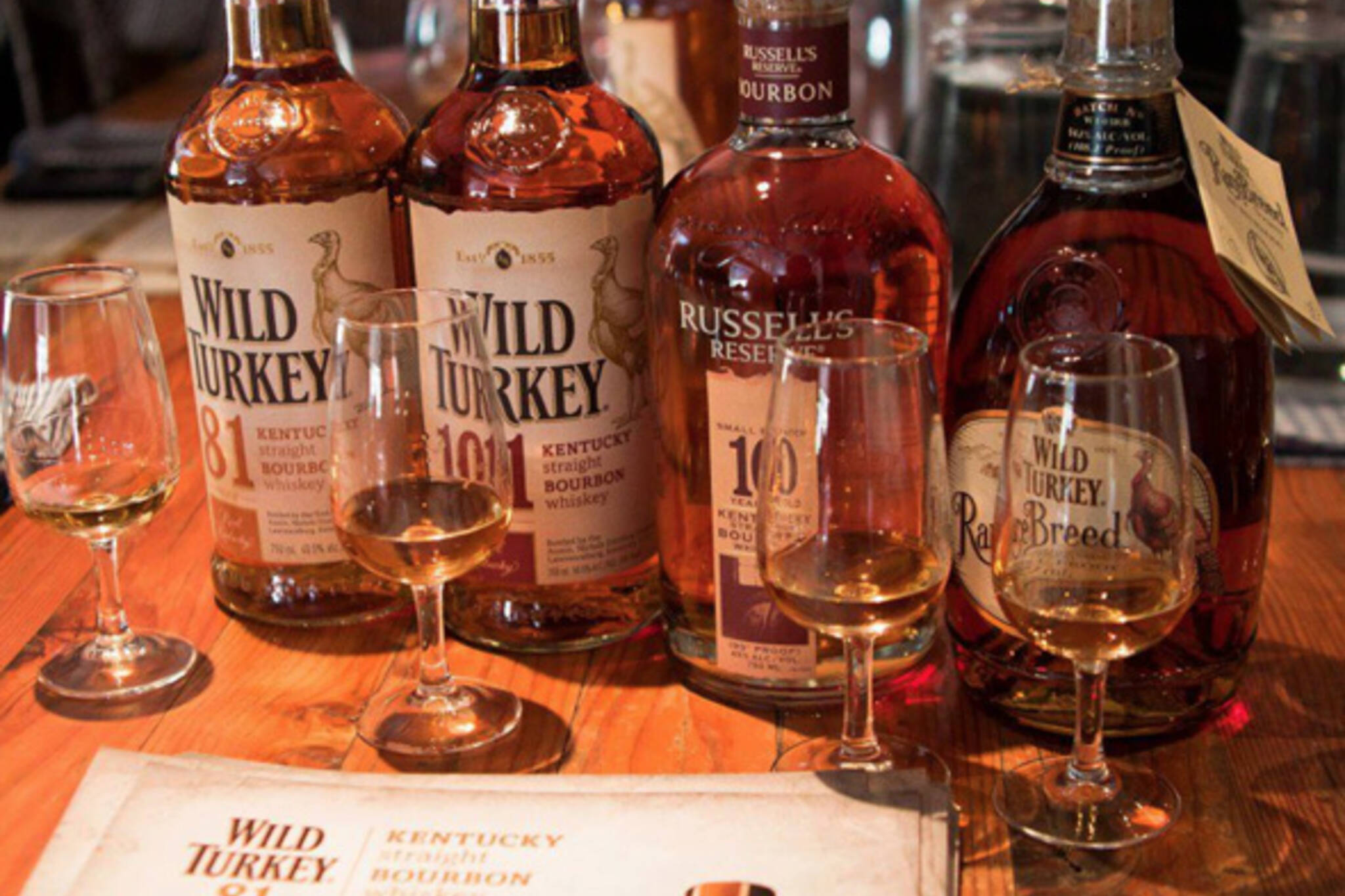
What's the difference between rye, whisky & bourbon?
Recent bar trends such as the revival of The Manhattan has seen an upturn in interest for Canada's native contribution to the world of beverage alcohol: Rye whisky. Now that the bourbon fad is slowing down, established American brands such as Knob Creek and Wild Turkey have been launching ryes. To get more insight, I went to visit Toronto's resident authority on all things whisky: Andrew Kaiser of The Emmet Ray.
With 27 Canadian whiskies on a list of 179 in total (including 46 Bourbons, 56 Scotches, and 16 Irish whiskies), The Emmet Ray houses one of the largest collections of Uisge Beatha available to the public here in the GTA. Andrew's been greedily grabbing everything in sight for his bar selection since opening in 2009. If its become available for sale in Ontario at any point in the last three years, you can expect to find it on the list.
Kaiser is quick to point out that people need to separate Canadian whisky from whisky that is made with rye. Though it has been traditionally referred to as 'Rye' by bar patrons the world over, Andrew holds that this is a throwback to Prohibition times, when Rye was simply a term to distinguish the whisky coming from Canada to that of other available whiskies, such as moonshine (made with corn and wheat), and Scotch or Irish (made with barley or wheat).
Until bourbon came to dominate the USA's whisky scene, rye was a common ingredient. Once prohibition kicked in, that deliciously spicy flavour spice was only (reliably) available from one source: with governmental regulations stipulating the necessity for 3 years of aging, and an official seal to designate it as Canadian whisky, the stuff coming from North of The Border was regarded as the finest, and only regulated whisky to pour at a decent speakeasy.
History aside, Canadian whisky might be known as 'Rye', but it doesn't really contain any more rye content than even most bourbons. Whilst there is a tradition of referring to Canadian whisky as rye, Andrew charges that the designation is a poisoned chalice for Canadian whisky makers, as the lack of appellation control over Rye in Canada has led distillers here to quietly accept the moniker in order to boost international sales.
A bar order, for example, of 'rye and ginger' is typically responded to with a Canadian Club and ginger ale, despite the whisky making no claims as to its rye content. Of the 27 on the list at the Emmet Ray, only 8 of these even have the word 'rye' on the label.
Andrew goes even further, claiming that as far as he is concerned, there is no such thing as whisky made with 100% rye - the alcohol yield is far too low to reliably (or profitably) make spirit with it. What he hopes people will understand, is that Canadian whisky deserves an identity of its own: as a spirit with a lively spice tempered by delicate smoothness - perfect for inclusion in the finest of cocktails.
The revival of rye production in the States might be producing some cracking whiskies, but even the finest distilleries in the world hold a special place in their heart for the distillates of the Great White North: both Caribou Crossing, and Royal Canadian are made with Canadian whisky that is imported to the world-famous Sazerac distillery in Kentucky, where it is lovingly aged before being released to the public.
Andrew's given us some of the highlights from his Canadian whisky list. It's worth checking them out first hand at 924 College. Along with the excellent new independent kitchen, Mess Hall (inside the Emmet Ray), and all the meat being provided by Sanagan's Meat Locker it's definitely worth a try.
Andrew Kaiser's top Canadian whiskies that won't crush your wallet:
Alberta Premium ($23.90)
'My favourite. I'll defend it to my death. It's listed as 100% rye on the bottle, but it's been with me through thick and thin since I was 15. This is my go-to.'
Wiser's 18yr ($65.95)
'This is a great session drinker, you can really knock this back. Also, it's a great price for an 18yr old'.
Danfield 21yr ($44.95)
'From Alberta, this whisky coats your whole palate, with a richness you don't see very often.'
Forty Creek Double Barrel ($54.95)
'Because it is made by a distiller who cares, who creates his own sherry just to have access to sherry barrels for aging. Forty Creek is blended after distillation, which allows for a finer distinction of the components on the palate.'
Forty Creek Copper Pot Reserve ($26.45)
'Also has to be included. This has a higher rye content, with a bigger spice'
Glen Breton ($77.95)
'This has to be on there too. Maybe not worth the price, but I still really like it'. This is Canada's first and only single malt whisky. 'Barley's much more expensive than rye or wheat, hence the price.' (Technically, it's not a rye in any sense, but always worth a mention when discussing Canadian Whisky)
McCloughlin and Steele ($44.25 - not available at LCBO)
'From BC, this is designated as Rye, but is super smooth. A great session whisky'
Century Reserve 15-25 Whiskey ($29.95)
'From Alberta, I'm including this for the exact same reasons as the McCloughlin and Steele.'
Writing by Jen Hunter. Photo from the County General Facebook page.
Latest Videos
Latest Videos
Join the conversation Load comments







